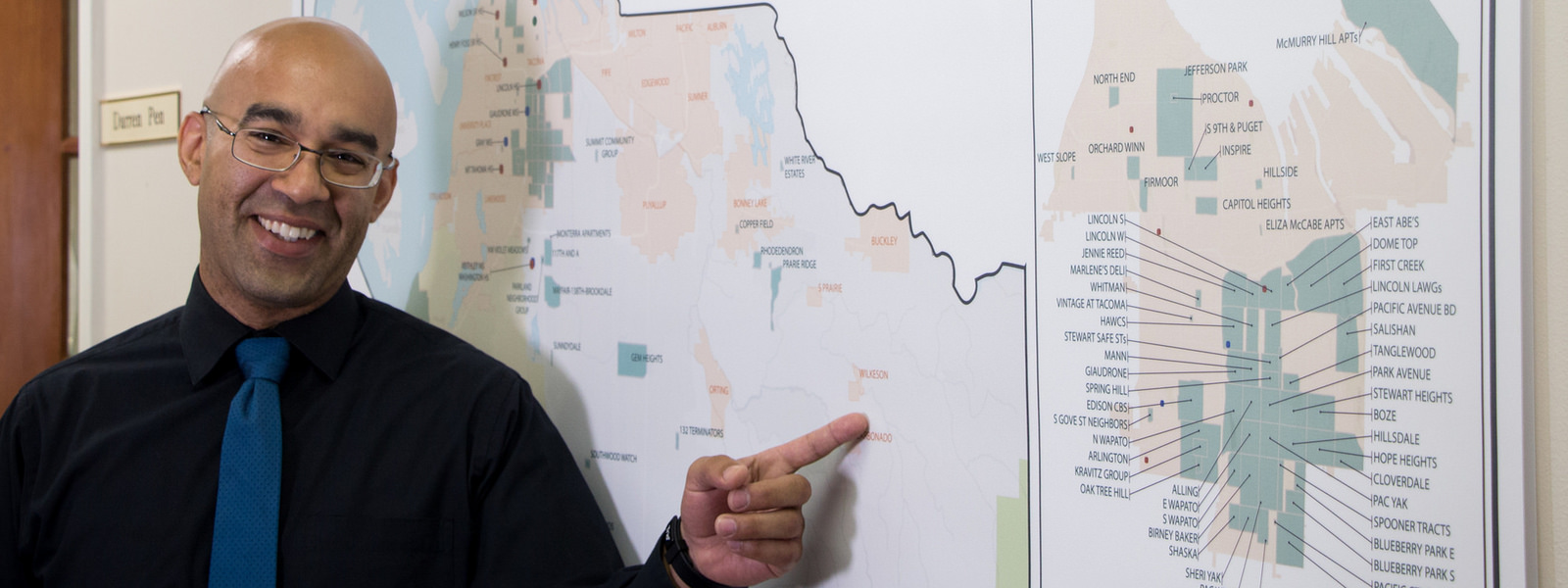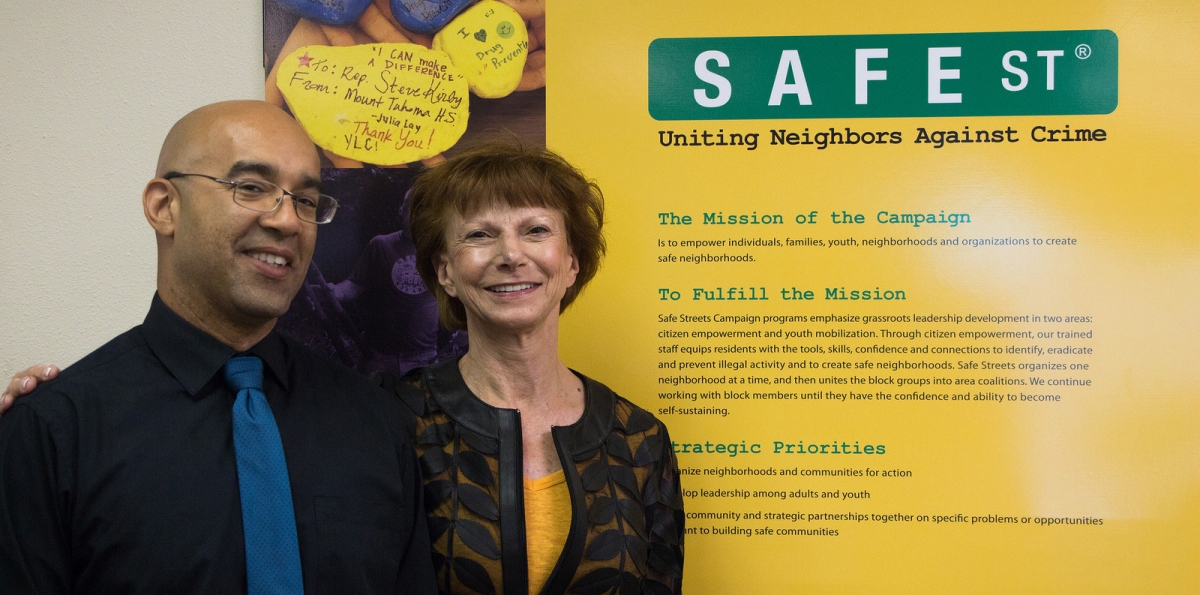
From Classroom to Boardroom
Years after an important encounter steered Wes Carter, '15, away from gangs, he is board president of the organization that made that encounter possible, courtesy of UW Tacoma's Board Governance course.
This is the conclusion of our two-parter on "Board Governance," a pair of linked courses offered as TMGMT 465 and 466 through the Milgard School of Business. Read part one, “Undergraduates Linking Theory and Practice.”
In the early 1990s, a speaker gave a presentation at Stewart Middle School in Tacoma. Wes Carter was in sixth grade at the time. He listened to the man tell his story of life in a gang. “This guy talked about being shot,” said Carter. “He looked really tough and after he told us that he started to cry.”
The experience resonated with Carter. Years later, he couldn’t recall the context of the visit or who organized it but he remembered the message. “This guy wanted us to know that gangs aren’t cool,” said Carter. “At that time Tacoma had serious issues with gangs and I was tempted to join one.”
Carter never did get involved with a gang. After high school, he started his own commercial truck-washing business. He got married and had two kids—boys. Carter ran the company with his wife for 13 years before deciding to attend college at UW Tacoma. “My mom is a librarian and she always stressed education,” he said. “I just decided I wanted a different challenge.”
Carter chose to major in marketing with the Milgard School of Business, a decision that led him to Joe Lawless and Dr. Jill Purdy. “I had Dr. Purdy for a class on managing organizations,” said Carter. “She brought Joe into class one day and talked about their board governance course and I thought it sounded really good.”
The course matches students with local non-profits. Students spend two quarters immersed in both the theoretical and practical side of non-profit board governance. They learn basic principles in the classroom and see them in action in the boardroom.
Students are paired with non-profits based on interest. Carter, a Tacoma native, wanted something that would allow him to give back to the city and its people. He was partnered with Safe Streets. The organization formed in 1989. Executive Director Priscilla Lisicich says the agency’s mission is to “empower community members to take charge of situations in their own neighborhoods so they can create a safer, cleaner and healthier environment.” The agency runs a network of more than 1,700 neighborhood block groups, provides services to non-English-speaking communities and sponsors clubs in area high schools that help youth develop leadership skills and address issues such as delinquency, dropout rates, substance use and violence.
Something interesting happened the first time Carter and Lisicich met. “We were talking and I brought up my experience at Stewart Middle School,” said Carter. “I shared this story with Priscilla and she said ‘you know what? That was a Safe Streets event.’ I was blown away, I had no idea.”

Carter describes his first board meeting as a “head-spinning experience.” Early on Carter did his best to blend in and not make waves. “Over time, I became more vocal, partly because Priscilla would ask for my input,” he said.
Lisicich and the board tasked Carter with helping develop a marketing campaign for Safe Streets. “We didn’t have much of a marketing strategy and I think Wes did a great job of getting it off the ground,” she said. Lisicich describes the organization’s involvement with the board governance course as largely positive. A few years ago a student involved with the class helped draft a succession plan for Safe Streets which is now being incorporated by the agency.
Carter graduated from UW Tacoma in 2015 and now works for Brown & Brown Insurance. He’s still very much involved with Safe Streets. He was asked to become a member of the board and was recently elected president. “This organization has had a big impact on my life,” said Carter. “The work they did back then is still relevant today and I wanted to be a part of it.”
Both Lisicich and Carter see the board governance course as providing valuable real-world experience. “It’s eye opening,” said Carter. “This class really helped me understand what goes on in both the corporate and non-profit worlds, on how decisions are made and how organizations plan for the long-term.”
Lisicich says the course allows students to see the inner workings of the non-profit world. “They get to witness the struggles as well as the celebrations,” she said. “Perhaps, most importantly, they get a better sense of the issues facing not only non-profits but also the communities they serve.”



